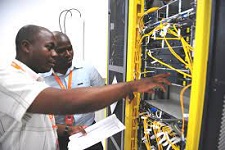Venture capital and private equity investors believe increased innovation in the delivery of internet connectivity in Africa will help drive dramatic expansion in connecting the continent, new research from blockchain-based mobile network operator World Mobile shows.
Its global study found that 78% of venture capital (VC) and private equity executives say innovative
approaches by new firms is the biggest factor in improving connectivity in Sub-Saharan Africa, where
only around 28% of the population** is connected to the internet. But failure to support innovation
risks improvements to connectivity stalling.
The need for innovation is demonstrated by the research – around 70% of VC and private equity executives questioned said a lack of infrastructure for traditional telecoms is holding back connectivity, while three quarters (75%) pinpointed a lack of innovation among traditional suppliers.
But the study with senior VC and private equity executives across the UK, US, the Middle East, Singapore, Hong Kong, France, and Germany shows they are optimistic – 86% expect improvements
over the next five years with 59% predicting dramatic improvements.
That will translate into increased investment by venture capital and private equity firms over the
next five years – 83% say improved connectivity will increase investment with more than half (53%)
predicting dramatic increases as more people become connected.
World Mobile is one of the major innovators revolutionizing internet connectivity in Africa and
working with the government in Zanzibar. Its innovative solution includes launching a unique hybrid
mobile network delivering connectivity supported by aerostats backed up with a range of technologies including mesh networking, hybrid spectrum, renewable energy, and blockchain.
It plans to expand the network throughout the continent and is in discussions with government
officials in Tanzania and Kenya, as well as other territories underserviced by traditional mobile
operators.
The table below shows the factors VC and private equity executives believe are holding back
connectivity in sub-Saharan Africa.
Micky Watkins, CEO of World Mobile said: “Improvements in internet connectivity and increased
investment go hand in hand as the research demonstrates, with venture capital and private equity
firms more willing to invest the more that connectivity improves.
“That said, there are hurdles to cross to achieve improvements in connectivity and a lack of infrastructure and innovation from traditional providers is a major issue identified in the research.
But increased innovation backed by investment will help drive connectivity and more investment in
the economy as a whole.
“The importance of internet connectivity will only grow in the future particularly for areas where
delivering affordable and reliable connectivity remains an issue. World Mobile’s network based on
the sharing economy sells affordable network nodes to local business owners, so they have the
power to connect themselves and others while sharing the rewards. This will enable more people to
access the opportunities that internet connectivity creates.”
World Mobile’s balloons will be the first to officially launch in Africa for commercial use, offering a
more cost-effective way to provide a digital connection to people and is the first step in its mission
to help bring nearly 3 billion people online before 2030 in line with the UN and World Bank’s SDGs.
World Mobile’s hybrid network takes a more sustainable approach than that of legacy mobile operators, offering innovative solutions to environmental, social and governance concerns. By using solar-powered nodes, second-life batteries and energy-efficient technology, the network mitigates its environmental impact. World Mobile also facilitates positive and sustainable societal growth through the application of its “sharing economy”, where locals share in the ownership and rewards of the network.
